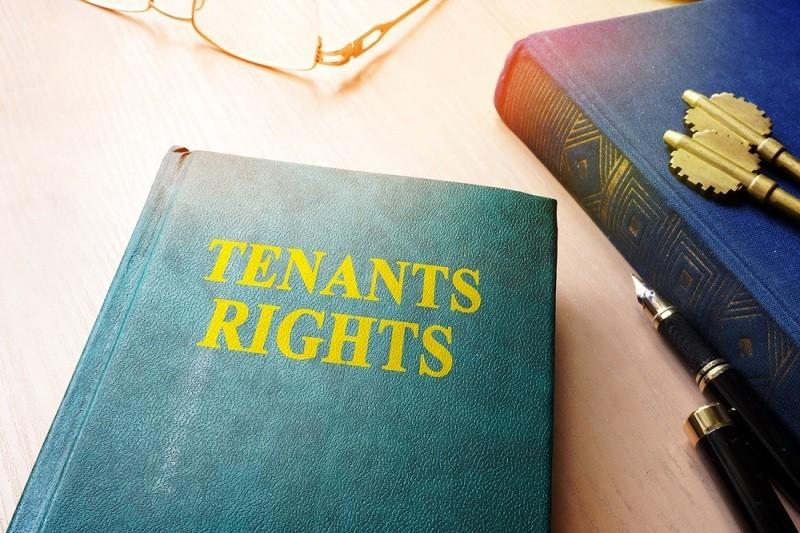
7 Tenant Rights That You Must Know
By: Jennifer Villalba
Information is important if you are about to rent an apartment. Whatever the situation you are facing, you should always be aware of your rights and the impact of Covid-19 on rental prices in NYC. With the right details and knowledge, you will be armed against loss and injustice. You will be confident, be mindful of your interests, and achieve the most out of any given circumstance. This is why you – as a tenant should be aware of the rights you have, which are so essential but not implied and followed.
The following rights will help and guide you every time a controversial situation with your landlord occurs.
1. Your Right to a Habitable Residence
Your landlord might not want you to know about this right that you have as a tenant. You have a right to rent clean, functional, hygienic housing. To maintain this standard is the landlord’s obligation. The landlord must ensure that the windows and doors are not broken, the walls and roofs should have no leakage and cracks, the bathroom pipes must deliver both cold and hot water. There should not be any vermin or pests in the entire house.
A tenant has the right to live in a well-functioning house and not slum housing that lacks sanitation services, clean water supply, electricity supply, and other essential services. If your space is in any way inhabitable, you must inform your landlord as a verbal complaint first.
2. Your Right to Receive a Timely Response to Complaints
If your rental space is inhabitable, the landlord must repair and fix things immediately. They shouldn’t be collecting rent during that time, technically. This does not mean that you quit paying rent. You must pay rent on time and remind them about the invoices in case you paid for any service.
The landlord might give you a discount on the next cycle of rent. All in all, you have every right to receive a timely response to your complaint. The landlord must act on your claims as soon as possible, as long as the wreck is not your fault. A dysfunctional house is the responsibility of the landlord.
3. Your Right to Third Party Intervention if the Landlord Fails to Observe it within Time
If there is a problem with your unit, the first step you should follow is to inform your, landlord, verbally. If there is no response still, you should write a dated letter with the details of the issue. Remember, this letter must include original photos with timestamps. If the case worsens you as a tenant can lodge a complaint with the Housing Authority. You should request for inspection. The authorities would directly tell the landlord to fix the issues. However, each city has different regulations to initiate the process.
4. Right to Timely Return of Security Deposit
Many jurisdictions have a formal deadline for how long the owner has to give you back your security deposit when you leave their rental space
Throughout California, for example, the landlord gets up to 21 days to repay the full security deposit, with fewer deductions for defined losses. The landlord has 30 days in Maryland, North Carolina, North Dakota, Michigan, and Pennsylvania. Be sure the landlord has your right mailing address so you can get the funds back on time.
5. Your Right to not let the Landlord Enter your Premises without Notice
You have the legal obligation to be informed before your landlord enters the house. People sometimes realize that their landlord comes to inspect, however, think that this may be a breach of their private lives. Many people have complained that the landlord enters their home without their consent.
Unless there’s an emergency (which needs no warning), the landlord will send you a 24-hour notice. It could be for a tour, maintenance, or to let the laborers in. And with the notification, the landlords are only permitted to enter during regular business hours.
6. You are Right to Know About Rent Increment and its Limitations.
Landlords are supposed to increase rents at the end of the lease term, which is usually one or two years. The number varies depending on the type of accommodation you reside in. If you are not in a lease-regulated house, the rate through which the rent can be increased is at the mercy of your owner. But under the new rental legislation that came into force earlier this year, landlords must offer at least 30 days’ notice if they decide to increase your rent by more than five percent or if they do not plan to renew your lease. If you have been renting for 1-2 years, then it is 60 days, and if you have been renting for two years, then it would be a three months notice.
Read Also: 5 Practical Ways to Avoid a Rent Increase
7. Your Right to Act Against Injustice Collectively
There is strength in joint action— and if you reside in a building with chronic issues, you might want to form an alliance with your neighbors and friends to ensure that your property owner or realtor fulfills their duties. To this end, inhabitants of a building can orchestrate a tenants ‘ association without fear of repercussions or pressure from their landlord; the proprietor of the building is also compelled to facilitate meetings to take place in common areas.
These are some of the rights that every tenant should keep in mind before moving into or renting your place so that they can avoid any controversial situation which can occur with their landlords.
Looking for Rental Apartment? Find Here!
Related Article:
Tenant Rights You Should Know When a House is for Sale
Do You Know Tenant’s Rights After an Apartment Fire?
Rights and Responsibilities of NYC Tenants
Landlord VS Tenant: Who is Responsible for Cleaning








